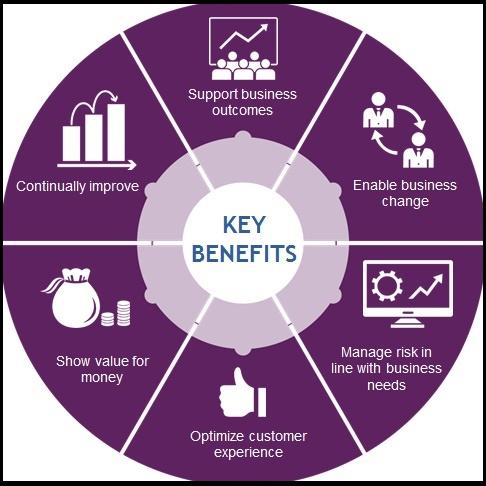In the fast-paced world of technology, cloud computing has emerged as a game-changing innovation that is revolutionizing the way businesses operate. From streamlined processes to cost savings, the benefits of cloud computing are endless. In this article, we will delve into the world of cloud computing, exploring its advantages and real-world applications in various industries. Join us on a journey of discovery as we uncover the power of the cloud and its potential to transform the way we work and interact with technology.
Key Advantages of Cloud Computing for Businesses
Cloud computing offers a range of key advantages for businesses, making it an increasingly popular choice for organizations of all sizes. One of the main benefits is cost savings, as businesses can avoid the costs associated with purchasing and maintaining physical servers and storage infrastructure. By leveraging cloud computing services, businesses can benefit from pay-as-you-go pricing models, allowing them to only pay for the resources they actually use.
Another advantage of cloud computing is scalability, enabling businesses to easily scale their resources up or down based on their needs. This flexibility is particularly valuable for businesses with fluctuating demands or those experiencing rapid growth. Additionally, cloud computing offers improved collaboration among employees, as teams can access and work on documents and projects from anywhere with an internet connection.

Evaluating Different Types of Cloud Computing Services
When it comes to , there are several key factors to consider. One important aspect to look at is the scalability of the service. Scalability refers to the ability of a cloud service to easily expand or contract based on the needs of a business. This is crucial for businesses that experience fluctuating demands or rapid growth. Another factor to consider is the level of security offered by the cloud service. Security is a top priority for businesses storing sensitive data in the cloud, so it’s important to choose a service that includes robust security measures to protect data from cyber threats.
Additionally, businesses should evaluate the level of flexibility and customization offered by the cloud service. Flexibility allows businesses to tailor the service to their specific needs, while customization enables businesses to create a unique cloud environment that fits their requirements. Finally, businesses should consider the cost-effectiveness of the cloud service. While upfront costs may seem lower for some services, hidden fees or lack of scalability could end up costing more in the long run. By carefully evaluating these factors, businesses can choose the cloud computing service that best meets their needs and goals.
![]()
Real-World Applications of Cloud Computing in Various Industries
Cloud computing has revolutionized the way businesses operate in various industries, offering numerous benefits and use cases that have transformed the way we work. One of the key advantages of cloud computing is its ability to provide flexibility and scalability, allowing companies to easily adjust their resources based on demand. This has been particularly beneficial for industries such as retail and hospitality, where seasonal fluctuations in demand can be easily managed through cloud-based solutions.
Moreover, the healthcare industry has also greatly benefited from cloud computing, with the ability to securely store and access patient data from anywhere at any time. This has improved efficiency and collaboration among healthcare providers, leading to better patient outcomes. Additionally, cloud computing has enabled manufacturing companies to streamline their operations through IoT integration, real-time analytics, and remote monitoring of production processes, resulting in increased productivity and cost savings.

Exploring Cloud Computing Best Practices for Implementation
Cloud computing has revolutionized the way businesses operate, offering a range of benefits that make it an attractive option for organizations of all sizes. Some of the key advantages of cloud computing include:
- Cost-efficiency: By utilizing cloud services, businesses can significantly reduce their operational costs by eliminating the need for physical hardware and on-premises infrastructure.
- Scalability: Cloud computing allows organizations to easily scale their resources up or down based on demand, providing flexibility and agility in a rapidly changing market.
- Accessibility: With cloud computing, employees can access data and applications from anywhere, at any time, enabling remote work and collaboration across different locations.
Businesses across various industries have successfully leveraged cloud computing to streamline their operations and drive innovation. Some common use cases of cloud computing include:
- Data Storage and Backup: Storing business-critical data in the cloud ensures its security and availability, with automated backups for data protection.
- Software as a Service (SaaS): SaaS applications allow businesses to access software on a subscription basis, reducing upfront costs and maintenance requirements.
- Disaster Recovery: Cloud-based disaster recovery solutions provide businesses with a reliable backup plan in case of unexpected data loss or system failures.
Closing Remarks
As we’ve explored in this article, cloud computing offers a wealth of benefits and use cases that are revolutionizing the way we store, manage, and access data. From scalability and cost-efficiency to enhanced collaboration and flexibility, the cloud is truly changing the landscape of technology. Whether you’re a business looking to streamline operations or an individual seeking seamless access to your files from anywhere in the world, cloud computing has something to offer everyone. Embrace the power of the cloud and unlock a world of possibilities for your digital needs. The sky’s the limit when it comes to cloud computing!

